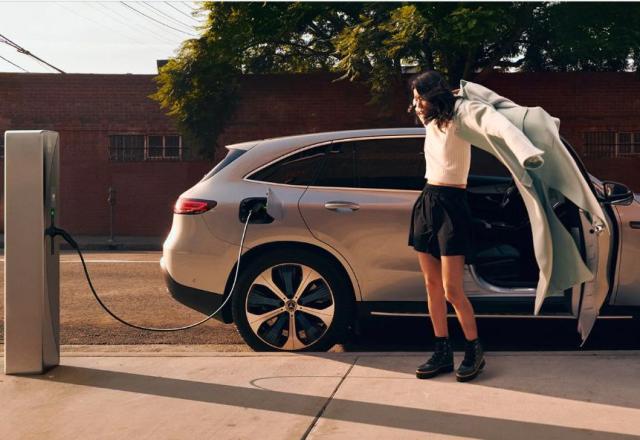Mercedes-Benz has reported an 18 percent year-on-year decline in electric vehicle (EV) sales for the second quarter of 2025, delivering just 41,900 battery electric vehicles between April and June. The drop in EV sales was sharper than the company’s overall 9 percent decline in total car and van sales, which stood at 547,100 units, Reuters news report said.
The German automaker in a news statement cited the impact of global tariff changes as a key reason, particularly affecting deliveries to key markets such as the U.S. and China. Sales in North America dropped 14 percent, while China saw a steeper 19 percent fall.
The company stated it had “carefully calibrated” deliveries to dealerships to navigate shifting global trade policies. However, there was a modest sales recovery in domestic and regional markets, with Germany and Europe recording growth of 7 percent and 1 percent, respectively.
EV focus
Mercedes-Benz is continuing its transition to electric mobility but is adjusting its strategy amid weakening demand. The company plans to offer battery electric vehicles (BEVs) in all segments by 2025 and aims for BEVs and plug-in hybrids to account for up to 50 percent of sales by 2030. However, it has pushed back its earlier goal of going all-electric by 2030, now aiming to retain internal combustion engine production into the next decade.
Mercedes-Benz is investing in its own battery production facilities and has introduced models like the EQS, EQE, and compact electric SUVs under the EQ brand. The automaker is also developing a new dedicated electric vehicle architecture, MB.EA, to underpin future models and improve range and efficiency. Despite short-term market headwinds, Mercedes-Benz remains committed to its long-term electrification strategy.
EV pricing
Mercedes‑Benz’s electric vehicle pricing has seen notable fluctuations and strategic adjustments in 2025. In early 2025, top-tier EVs like the EQS 450 and EQS 580 sedans were marked down by around $13,500 — roughly 11–12 percent off their MSRPs, which originally began in the $108,000 to $128,000 range, while the EQS SUV saw discounts of approximately 8 percent, or about $10,500 off.
Kelley Blue Book data reveals that the EQS SUV’s MSRP sits near $106,300–$106,400, with average purchase prices appearing 10–12 percent below MSRP, depending on trim.
For the 2025 EQS sedan, MSRPs range from about $104,400 for the base rear-wheel-drive model to around $128,500 for the EQS 580 4MATIC, with actual transaction prices often $6,000–8,000 under sticker. The entry-level EQS 450+ has held its MSRP at about $104,400, while the 2025 EQS SUV’s pricing rose modestly — about $850 — bringing the 450+ SUV to roughly $106,400.
High-end EVs from Mercedes are also losing value quickly, with some models like the EQE dropping by roughly 45–50 percent in their first year. The recently launched electric G-Class (G 580), priced around $190,000, sold poorly — just 1,450 units versus 9,700 for the gasoline G-Wagon — and was internally considered a commercial failure due to its high price and limited 239-mile range.
Mercedes and other premium automakers, after initially raising EV prices, are now adjusting downward due to slower demand, strong competition from lower-cost Chinese brands, and rising production costs. Mercedes has delayed its full electrification plans and is focusing more on hybrids and affordable EVs like the EQB, EQE, and the upcoming EQ CLA to improve accessibility and support long-term strategy.
Baburajan Kizhakedath

